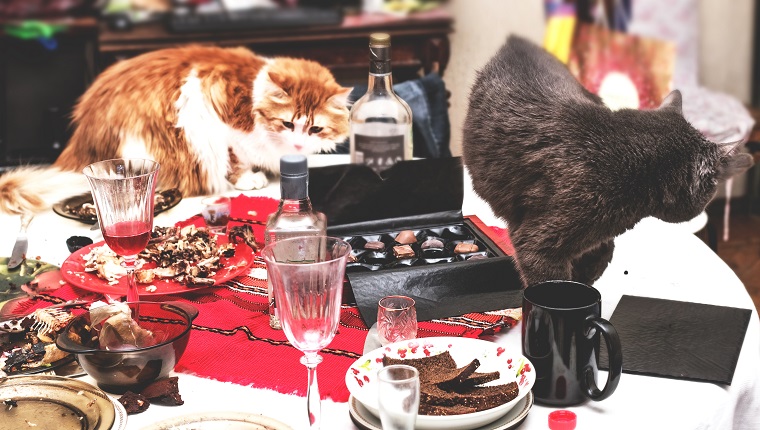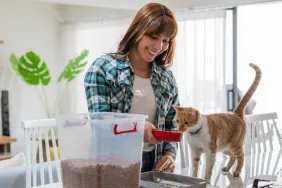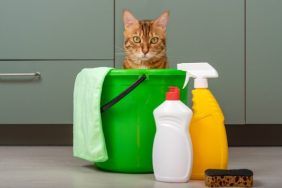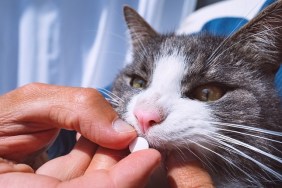The third full week in March is National Poison Prevention Week, which was started in 1962 by Congress and President John F. Kennedy. It kicks off on March 20th in 2022.
March also happens to be Pet Poison Prevention Awareness Month, so it is an especially appropriate time for us to talk about ways we can prevent accidental poisoning in our cats and spread education to other cat parents about steps they can take to keep their kitties safe.
Here are some things you should know during National Poison Prevention Week and Pet Poison Prevention Awareness Month.
What To Do If Your Cat Is Poisoned
Firstly, if you suspect your cat has been poisoned, call your nearest emergency veterinarian immediately and follow their instructions.
When you call, the vet may instruct you to give your cat a counteractive substance, fluids to dilute the poison or help it pass through the system, or medicine.
They may also instruct you to induce vomiting or bring your cat to the pet emergency room for treatment immediately.
It is important that you do NOT take any of these steps without veterinary instructions because different cases of poisoning require different solutions. If you try to induce vomiting or give your cat medication without a vet’s approval, you can make the situation far worse and more deadly.
If an emergency veterinarian is unavailable, you can try contacting the ASPCA’s animal poison control hotline at (888) 426-4435. Just be aware that you may be charged a fee for using this service.
Symptoms Of Poisoning In Cats

Symptoms of poisoning vary depending on the substance that has been ingested, but they may include:
- Vomiting
- Diarrhea or bloody stool
- Excessive urination
- Seizures
- Nosebleeds
- Loss of appetite
- Unusual behavior
- Dizziness
- Loss of coordination
- Lethargy
- Unusual breathing patterns or heartbeat
Keep in mind, these are only a few signs of poisoning, and other symptoms may appear.
Most Common Ways Cats Are Poisoned
While accidents happen, the best method of keeping cats safe from poisoning is prevention.
There are many common household and environmental substances and items that can cause poisoning in cats. The list below is not a complete list of all the things that may cause poisoning in your cat. However, it goes over some of the most common substances that cause feline poisoning.
If you have these items in your home or see them in your cat’s environment, then remove them or put them somewhere that your cat cannot reach.
Here are some of the substances that cause the most poisonings in cats:
- Chocolate, grapes, and several other human foods (ask your vet before sharing food with your cat)
- Artificial sweeteners such as xylitol, found in many candies and peanut butters
- Household cleaners and chemicals
- Certain soaps
- Certain essential oils and liquid potpourri
- Paint
- Heavy metals, including those in pennies
- Pesticides or herbicides
- Fertilizer
- Antifreeze
- Alcohol
- Caffeine
- Tobacco or vape liquid
- Prescription or recreational drugs, including marijuana
- Human vitamins
- Rodent poison or contact with rodents that have ingested poison
- Batteries
- Glow sticks
- Fabric softener
- Several types of plants, including daffodils, lilies, azaleas, geraniums, tomato plants, and more
- Kerosene, gasoline, or torch fluid
- Snail bait
- Toxic toads — native to many parts of the United States
- Poisonous mushrooms
- Mothballs
Please help spread the word during Pet Poison Prevention Awareness Month and National Poison Prevention Week so we can help save cats’ lives. Share this information with your cat loving friends and family so we can prevent cats from being accidentally poisoned.
What kinds of steps do you take to make sure your cat doesn’t get poisoned by substances in or around your home? Have you ever had to deal with an accidental poisoning emergency? Let us know in the comments below!









